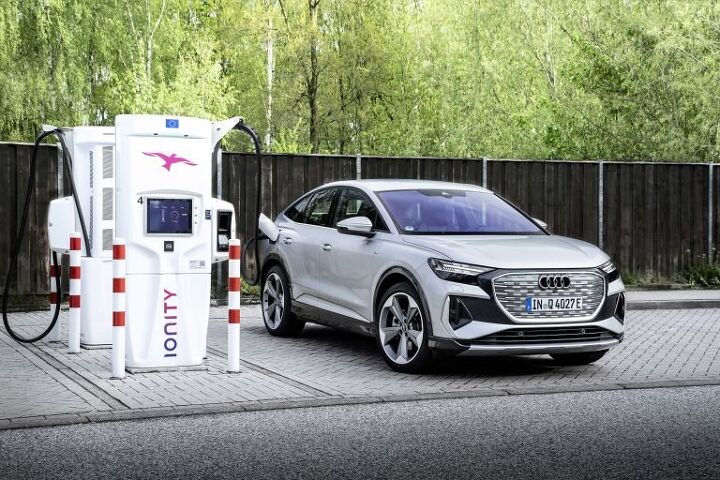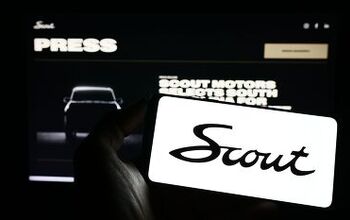Audi Transitioning Solely to EVs Doesn't Include Chinese Market

Volkswagen Group has been prattling on about electrification for years and ultimately decided that Audi would be the tip of its progressive spear. The brand has cachet as both a luxury and performance division, while simultaneously possessing VW’s magical ability to produce vehicles that don’t become an eyesore after you’ve had them in the garage for a decade.
While transitioning toward EVs runs the risk of spoiling that, Audi is clearly the VW property best positioned to come after would-be Tesla customers and is not hesitant to issue reminders that it’s serious about being a global leader when it comes to battery-driven vehicles. On Tuesday, the Ingolstadt-based company announced plans to exclusively launch electrically driven automobiles from 2026 onward — adding that it doesn’t even plan on selling internal-combustion vehicles by 2033.
But these rules won’t apply to the Chinese market, which will be flush with internal-combustion vehicles produced within its borders years after the rest of the world has apparently lost the option to purchase them.
“Through our innovative strength, we offer individuals sustainable and carbon-neutral mobility options,” Audi CEO Duesmann told attendees of the Climate Neutrality Foundation conference. “I don’t believe in the success of bans. I believe in the success of technology and innovation.”
Audi’s release stated that the EV timetable will primarily be dictated by consumer interest and governmental legislation (e.g. bans). But it’s vying to be carbon neutral by 2050 and feels it’s already on the path to get there. China doesn’t seem to enter into that equation, however.
From Audi:
The exact timing of the combustion engine’s discontinuation at Audi will ultimately be decided by customers and legislation. The company expects to see continued demand in China beyond 2033, which is why there could be a supply of vehicles there with combustion engines manufactured locally. At the same time, Audi will significantly expand its range of all-electric models. With the new e-tron GT, RS e-tron GT, Q4 e-tron, and Q4 Sportback e-tron models, Audi is already launching more electric cars than models with combustion engines this year. By 2025, the brand aims to have more than 20 e-models in its lineup. “With this roadmap, we are creating the clarity necessary to make a decisive and powerful transition to the electric age. We’re sending the signal that Audi is ready,” said Duesmann.
The expansion of a widespread charging infrastructure and renewable energy sources is also crucial for the ramp-up of e-mobility and its acceptance by society. Audi is actively involved in both areas. For example, just a few weeks ago the company from Ingolstadt unveiled the Audi charging hub pilot project as its own premium charging solution with a reservation system and lounge. On top of that, the carmaker has partnered with energy suppliers to promote the expansion of renewable energy sources.
This is another one of those weird instances where China has committed itself to environmental reforms in a manner that requires little-to-no action. The Chinese Communist Party (CCP) has stated that it intends to require all new cars sold after 2035 to be eco-friendly. But the actual breakdown splits new vehicles in half, forcing 50 percent to be wholly electric, plug-in hybrid, or fuel cell vehicles. The other half get to be conventional hybrid cars, which are still entirely dependent upon gasoline to get where they’re going.
It’s a curious solution for a country that has everything to gain from convincing other nations to go all-in on EVs. China is already the world’s leading battery supplier and previously subsidized domestic electric vehicle companies on a massive scale. Provided it can keep suppliers in a favorable position and continue advancing its own technological base, it would find itself in an ideal situation when the whole world has gone electric. But China’s actions aren’t indicative of environmentalism being its first concern.
Despite the CCP being part of the Paris Climate Agreement (which the United Nations Framework Convention on Climate Change claims is legally binding), it technically doesn’t have to do anything for another decade. While other nations are tamping down greenhouse emissions, China frequently goads them into upping the ante and has vowed to try and peak its own carbon dioxide emissions before 2030. It’s the equivalent of saying “just one more bite” at a dinner party and slowly finishing the food left on everyone else’s plate. Meanwhile, China produces more greenhouse gasses than any other country on the planet and currently accounts for around 28 percent of the world’s CO2 emissions. It’s also building coal-fired power plants at an accelerated rate to contend with its own swelling energy needs.
Audi has shrewdly realized that the world’s largest automotive market probably isn’t going to be dropping the hammer on gasoline-powered cars quite so aggressively as the European Union and tailored long-term production strategies accordingly. But remember that automakers frequently shift the goalpost and will likely delay whatever EV targets they’ve set, even if they’re committed to phasing out ICEs eventually. That 2033 target is likely to be pushed back to 2043 in a few years.
[Images: Audi]

A staunch consumer advocate tracking industry trends and regulation. Before joining TTAC, Matt spent a decade working for marketing and research firms based in NYC. Clients included several of the world’s largest automakers, global tire brands, and aftermarket part suppliers. Dissatisfied with the corporate world and resentful of having to wear suits everyday, he pivoted to writing about cars. Since then, that man has become an ardent supporter of the right-to-repair movement, been interviewed on the auto industry by national radio broadcasts, driven more rental cars than anyone ever should, participated in amateur rallying events, and received the requisite minimum training as sanctioned by the SCCA. Handy with a wrench, Matt grew up surrounded by Detroit auto workers and managed to get a pizza delivery job before he was legally eligible. He later found himself driving box trucks through Manhattan, guaranteeing future sympathy for actual truckers. He continues to conduct research pertaining to the automotive sector as an independent contractor and has since moved back to his native Michigan, closer to where the cars are born. A contrarian, Matt claims to prefer understeer — stating that front and all-wheel drive vehicles cater best to his driving style.
More by Matt Posky
Latest Car Reviews
Read moreLatest Product Reviews
Read moreRecent Comments
- SCE to AUX I hope they're buying good lawyers, too.
- SCE to AUX Nothing to see here. Gas prices 2021-23 were the same as they were in 2007-2008, adjusted for inflation. The R's were in charge then.https://www.randomuseless.info/gasprice/gasprice.html
- VoGhost Just reminding us all that we have to tolerate dealers (many of whom are billionaires) in the US if we want new legacy ICE vehicles because the dealers pay for the campaigns of local politicians, with our money.
- 1995 SC I'm still trying to get past the fact that the Red Bull guy is married to a Spice Girl.
- Ravenuer Not into F1. Started watching NASCAR back when they raced actual cars. (yeah I'm that old). Not any more. They aren't "stock cars" now. Not even close. Even drag races don't interest me anymore. Races are over in 3 seconds.



































Comments
Join the conversation
So China will still produce ICE/Hybrids when the rest of the world goes total ev. Hooray! Australians will still have ICE vehicles in the future as the current governments, both state (some) & federal don't believe in EV's and are trying to tax them out of contention, believe in green coal (it's only green if you paint it) and LPG is the best thing since sliced bread. Amongst their arsenal is the fact that EV's can't tow, will ruin the weekend, and kill the Aussie ute (don't tell them there hasn't been an Aussie ute since they ran Holden out of town). I for one welcome my Chinese overlords/car dealers! Disclaimer I own a HAVAL H9.
"It’s a curious solution for a country that has everything to gain from convincing other nations to go all-in on EVs." They are still a productive country. hence need stuff which works. Not just mindless nonsense to babble about while living off of burning seedcorn and robbing an ever dwindling class of productive people. Communism ain't all that as far as encouraging efficient resource allocation and production. But compared to some run-amuck financialized ambulance-chaser-and-FIRE-leech-topia, it's light years ahead. As for Audi: Blah, Blah. Those who can, do. Those who can't, plan. While babbling to anyone dumb enough to pay attention about all great things they will do tomorrow. Just not today.